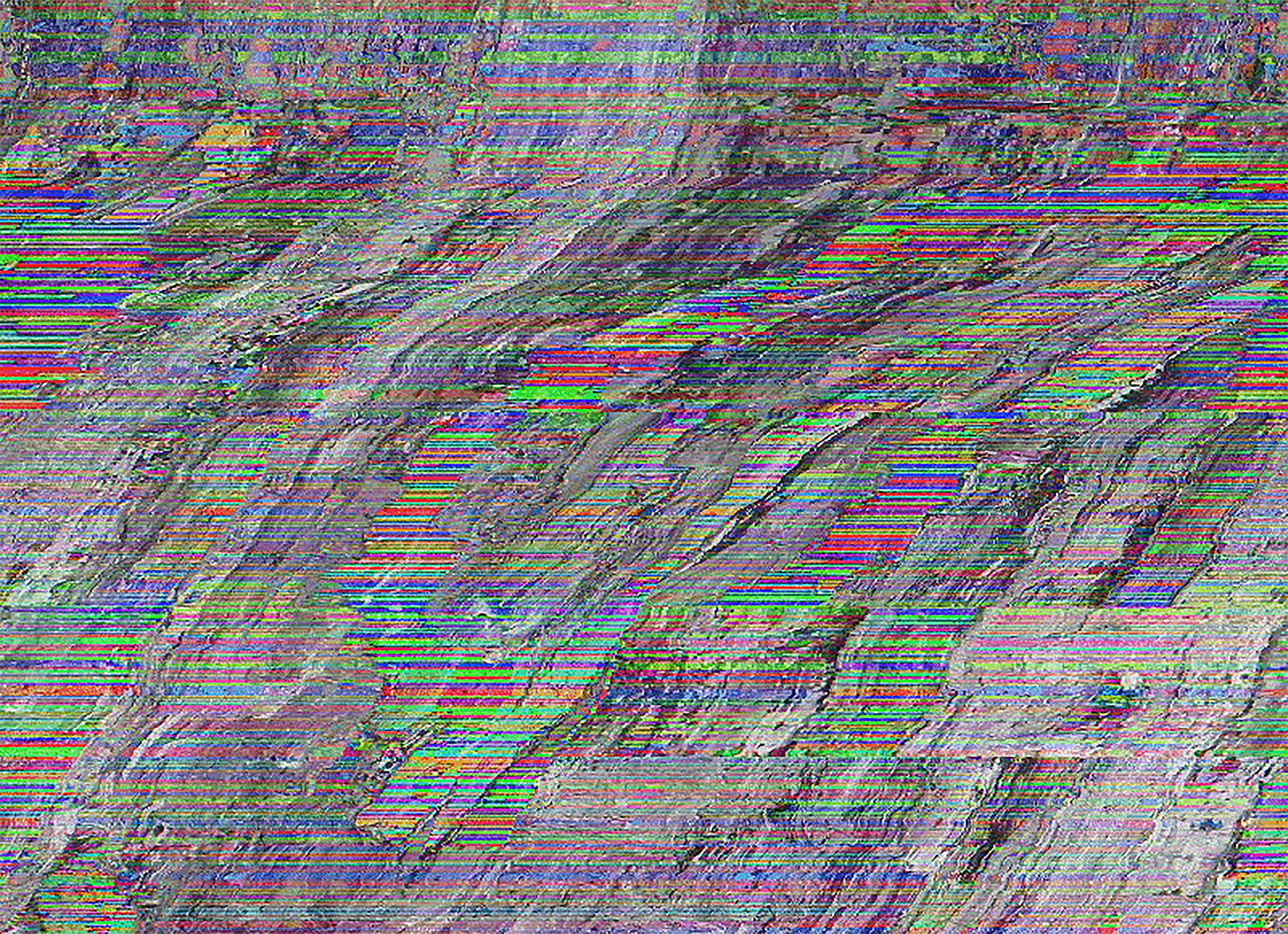
The sale was supposed to be the latest lucrative edition of Sotheby’s NFT outgrowth, Natively Digital, instead it’s drawing renewed attention to the lack of inclusivity in the crypto art space.
The “Natively Digital: Glitch-ism” sale had brought together work from leading glitch artists, whose work revels in the aesthetics of distortion and pixelation, and was two days into a bidding period scheduled to run March 24–31.
Then, artist Patrick Amadon announced on Twitter that he was withdrawing his work, citing the sale’s lack of female-identifying artists. His tweet followed discussions among artists included in the sale, who voiced similar concerns. Within hours, the auction house had paused “Glitch-ism,” promising to rethink and relaunch.
For Amadon, the crisis of conscience arrived after being tagged in a tweet by artist Oona who questioned how a landmark glitch show could have been curated by a major auction house without including a single female artist. In fact, pushback to the all-male auction had been brewing online for some time, though largely out of the public spotlight.
XCOPY, Loading New Conflict… Redux 6 (2018), one of the works in “Glitch-ism,” which also included pieces by JakNFT, jakethedegen, Luis Ponce, and neurocolor. Photo courtesy of Sotheby’s.
The complaints, however, go far beyond the sale’s lack of diversity. In one instance, Dawnia Darkstone, a prominent glitch artist, had been asked to provide analysis of the glitch art scene by the show’s curator Davis Brown, but was denied compensation and inclusion in the show. In another, Rosa Menkman, a Dutch art theorist and glitch art creator, had work that was used, without permission, in the show’s promotional material. Needless to say, she wasn’t asked to contribute work for the sale.
“The all-male glitch art show promoted by Sotheby’s is yet another example of the existing disparity in the art world,” Oona told Artnet News. “Non-male artwork is consistently undervalued and underrepresented. If we don’t acknowledge and address this problem, it will only continue to worsen.”
In response to the pressure generated by Oona and fellow artists such as Stellabelle and Darkstone, Sotheby’s has pledged to “redress the imbalance in representation within the sale, and will restart with a more equitable and diverse group of artists at a later date.” Part of this effort will include an exhibition and panel event at NFT.NYC, which runs from April 12–14, centered on underrepresented communities of glitch artists.
Though Amadon appreciated Sotheby’s prompt reaction and believes the oversight was a “genuine mistake,” he stressed the importance of equitable representation at the nascent stage of the sector’s development.
“Often, price becomes the signaling factor, but that’s not an honest assessment of quality or importance,” Amadon told Artnet News. “[This] perpetuates the cycle of enriching artists and collectors with privilege and opportunity. Platforms need to do a better job of identifying this and taking more responsibility.”
Key to sparking change, Oona noted, is demanding higher prices for non-male artists. “For far too long, the link between financial worth and artistic merit has been inextricably tied to our cultural understanding of art,” Oona said. “This isn’t about having all-female shows or tokenism. It’s about achieving real parity in pay and vision. It’s time for women and non-male artists to be given an equal platform to showcase their talents.”
In the revised “Glitch-ism” sale, Amadon hopes to see works by the likes of Empress Trash, Stella Particula, Ina Vare, Epic Thundercat, Dawnia Darkstone, Iteration, and wondermundo.
For Amadon, it’s the second instance in a matter of weeks that he’s drawn attention for the social component of his artistic practice. During Hong Kong Art Week, his moving image work No Rioters was removed from the gigantic LED billboard in the Causeway Bay shopping district after it was revealed the piece flashed the names of jailed Hong Kong pro-democracy activists.
Sotheby’s declined to specify a date for relaunching “Glitch-ism.”